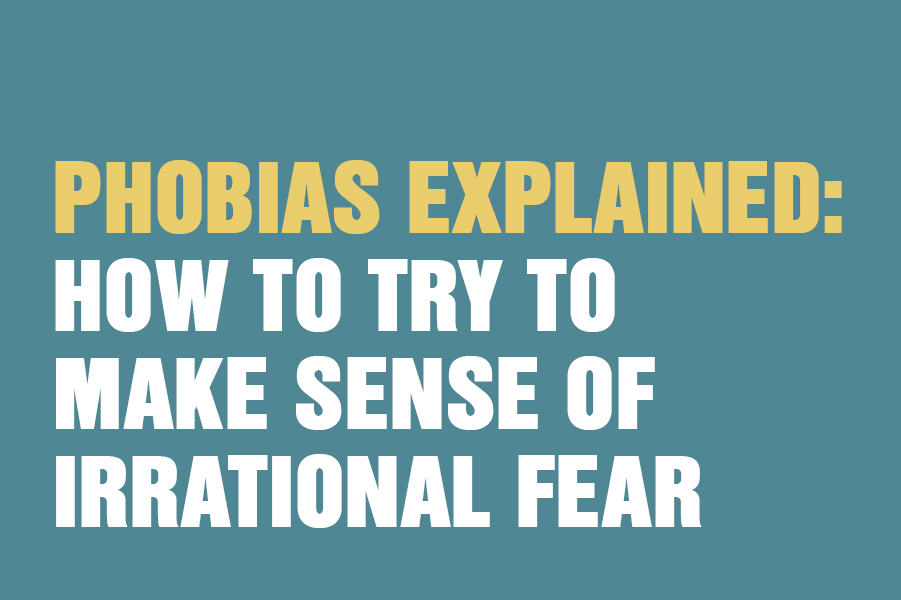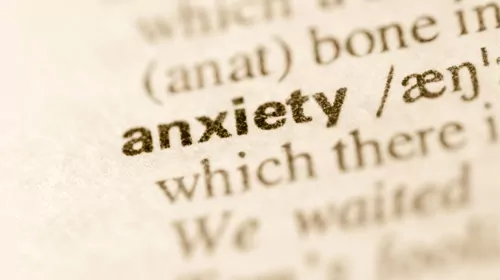If tackling your anxiety is top of your resolutions list this year, read on…
Sometimes, no matter how deeply you mean to change your habits at the start of a new year, it can be incredibly difficult to achieve that change. While a new year offers the opportunity of a fresh new start, old habits really do die hard. You may have resolved this year to stress less and live more – but it can only take one day back at work, and a glance at your busy diary stretching 12 months ahead, to fill you with that familiar sense of dread.
You might be feeling the weight of responsibility to please others, or you’re fretting about all the things you could have, should have, would have done, if you’d only had the time. You add more and more things to your hectic schedule as you try to squeeze everything in. There you go piling pressure on yourself – again- to make this year count, personally and professionally. Anxiety easily creeps in as you start to feel overwhelmed and under-resourced to live the life you truly want.
Anxious feelings can be cumulative. You can become anxious in situations and circumstances and, over time, this anxiety can build up and take hold. However, the opposite is also true: you can introduce habits to help you reduce your stress and overwhelm which, over time, can also help to reduce your anxiety.
Here are six habits for the year ahead to help soothe your anxiety…
1. Be in the moment as much as you can
If you’re anxious then you’re rarely in the moment. Your thoughts will carry you to a scary point in the future where you can’t cope, bringing you out in sweats at the thought of what a mess you’re going to make of things. Anxiety can also leave you raking over the past, berating yourself for what you could have said and done better. Try being in the moment instead. Take in the world through all of your senses – your eyes, ears, taste, smell and touch – not just through your anxious thinking. Concentrate on what the person in front of you is saying, not what you might say next. There is less room for anxiety if you’re truly present for yourself and others.
2. Relax
If you suffer from anxiety then it’s highly likely that you’ll find it difficult to relax. You may find yourself strumming your fingers in between appointments rather than giving your mind and body a rest. Your anxious thoughts might leave you on edge and fidgety. Or relaxing might feel like a waste of time when you’ve really got so much to do. Yet the ability to relax can offer so much more to your life: you have so much energy and vigour once you’ve allowed yourself truly to relax. To help embed the habit of relaxing, however, you might need to reframe it as an activity. Think of relaxing as enjoying time rather than wasting time: see relaxing as an investment of time in a more productive and creative future.
3. Let go of stuff that isn’t serving you
This habit works literally and metaphorically.
Literally: If your environment is cluttered and messy then it may make you anxious. You’d like a more structured setting around you, but sifting through the objects and paperwork you’ve accumulated over the years can feel stressful and emotional. The process of clearing your clutter is fundamentally a healthy one. You may have to approach it in stages, though. If the thing taking up space isn’t adding to your life, and you don’t love it, then let it go. Pass it on to someone who needs it more. Do this one drawer at a time.
Metaphorically: An anxious mind likes nothing more than to cling on to hurts, slights, mistakes, fears and what ifs. During the day you may find yourself anxiously ruminating on what someone has said and done to you, or what you may have done to someone else. How does this serve you? It doesn’t. This old habit simply takes up energy that you could be using more creatively somewhere else. Let the thought go.
4. Write things down
This habit links to letting things go. Writing things down gets the thought or feeling out of your head and onto the page. The page can then hold the difficult feeling so you don’t have to. It frees up space in your brain for other things. You may want to write things down in a ‘worry journal’ – a book to hold all your anxieties and fears. Even writing a to-do list will help with the anxiety of forgetting things – and you’ll have the pleasure of ticking things off. Just don’t overload the list so you can’t beat yourself up for not completing everything.
5. Do a physical activity just for fun
A powerful antidote for anxiety is to take yourself out of your head and into your body. If you don’t already have an exercise routine, then we suggest getting yourself one. It doesn’t have to be a 10-mile hike every day. Pick something that feels like fun – just for the sake of it. It will not only boost your mood through the exercise, but you might start to take yourself a little less seriously.
6. Trust your intuition
Your intuition tends to know stuff before you do. It all depends on how good your relationship with your intuition is. Do you trust your gut feeling, or override it with rational alternatives? Do you dismiss that nagging sense of something not being right, and go along with it anyway? Trusting your intuition means tuning into your inner wisdom. It generally communicates through hunches and ‘gut feelings’. Try listening to those feelings without acting on them at first. Note the outcome (i.e. was your gut right or not) and follow those feelings next time. If you’re led by your intuition then you will trust life more, and will feel way less anxious about what’s right for you.
If you feel overwhelmed by your anxiety and could benefit from professional support, call our team on 020 8673 4545 to make an appointment with one of our therapists. You can also email us on [email protected] We have centres in Clapham and Tooting, with no waiting list.







